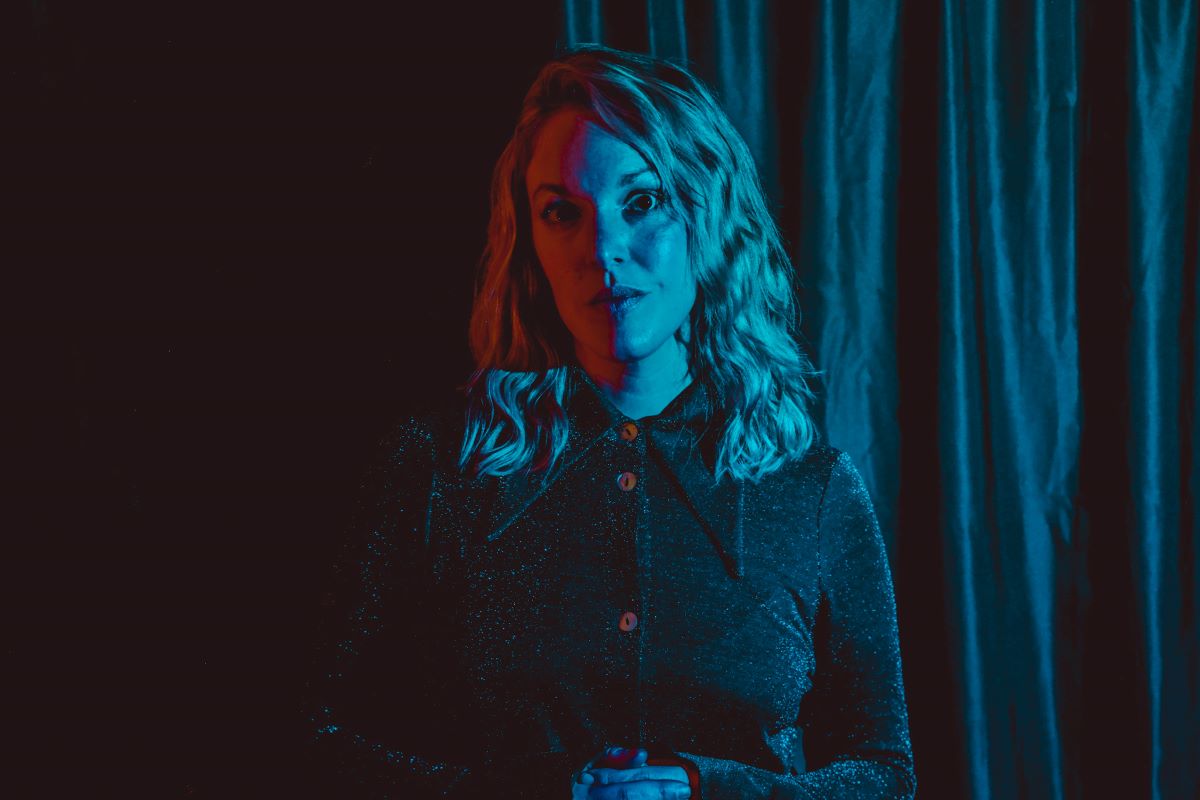
Photo credit: Sarah Danelli
Tell us about your tour vehicle. Any notable breakdown stories?
Up until a few months ago, I had been touring with my personal car, a 2006 Saturn Vue. It was a great car! I was definitely sad to get rid of it, but as is the case with a 17-year-old car, it was becoming a money pit and more importantly, unreliable. For instance, during its senior years, a few bandmates and I were stuck in an ice storm somewhere in North Carolina. We stopped for gas and noticed that one of the rear passenger doors wouldn’t latch shut. We detoured to the nearest AutoZone, bought bungee cords, and used them to MacGyver the door shut. There was probably a better method, but it worked!
How do you eat cheaply and/or healthy while on tour?
Eating healthy and doing so on the cheap is a big priority on tour. For health reasons, I prefer a vegan diet which makes eating on the road extra tricky. I like buying boxes of Larabars, bags of trail mix, and/or bananas and a jar of peanut butter for quick, but substantial, fuel.
How many strings do you break in a typical year? How much does it cost to replace them?
Thankfully, I hardly ever break strings, but I still like to change out my strings every few weeks, especially when I’m playing regularly. Because I mostly play solo, or with a guitar player, I like to have fresh strings to get the best possible tone out of my instrument. I like to buy strings in bulk to cut down on costs, but the cost is still substantial: probably $300/year.
Where do you rehearse?
A few years ago, I renovated my basement to be my studio/rehearsal space. I’m still working on outfitting the space for full band rehearsals, but in the meantime it’s a great space to rehearse on my own or with a guitar player.
What was the title and a sample lyric from the first song that you wrote?
“Sweep” was the first song I wrote that I didn’t hate. My favorite lyric in the song is in the bridge: “Only have this hope to guide me / Steady as the moonlight on the water”.
Describe your first gig.
My first gig was at the iconic, charmingly trashy, and now-shuttered Velvet Lounge in Washington, DC. I really feel like playing the Velvet Lounge is a rite of passage as a DC-area musician. At the time, I was performing with an upright bassist and violinist, both of whom were classically trained. As a new singer-songwriter and self-taught guitarist, I was way out of my league and therefore let them write and arrange parts as they saw fit. We had a pretty cool chamber folk rock thing going on! It was short-lived, but those guys taught me a lot about being a serious musician.
We played first in a mishmashed bill of local bands. The sound was characteristically bad, and the downstairs DJ was bleeding through the floorboards, but it could’ve been my wedding! There were people present from almost every circle of my life (a product of being in your early 20’s in a big city). I remember feeling blown away by the support; it was certainly the best initiation into performing I could’ve asked for!
What was your last day job? What was your favorite day job?
I actually started working my current day job the same year I started taking music seriously. I work for the government–I know, it’s the typical DC job– working for the Patent and Trademark Office as a design patent examiner. The job is autonomous and flexible; it allows me to pretty seamlessly pursue my music career. And it’s literally afforded me the ability to self-fund almost everything I’ve ever done in music over the past 10 years. I really can’t ask for more than that!
How has your music-related income changed over the past 5-10 years? What do you expect it to look like 5-10 years from now?
My music-related income has changed a lot over the past 10 years. Now that CD’s and most physical forms of music are all but obsolete, I’ve had to rethink what I sell at shows and on my website. For instance, I’ve been selling more of my artwork and thinking of ways to monetize my visual art pursuits. You definitely have to be creative in this industry!
In the next 5-10 years, I see social media playing an even bigger role in helping artists make money by adding more effective marketplace and hyperlink features. In the end, I think it’s all about connecting with the people who will not only listen to your music but support your career. I’m convinced that once you find your community, job security will come!
What one thing do you know now that you had wished you knew when you started your career in music?
One thing I wished I had known when I started my music career was that there isn’t a “right” way to build one. I wasted a lot of time feeling illegitimate because I had a day job, or because I started my career in my late 20’s, or because I didn’t have formal music training. I now see those qualities as blessings that have guided me along a path that, frankly, I wouldn’t alter. I think it’s important for artists to allow themselves to be exactly who they are and embrace exactly where they are in life.
